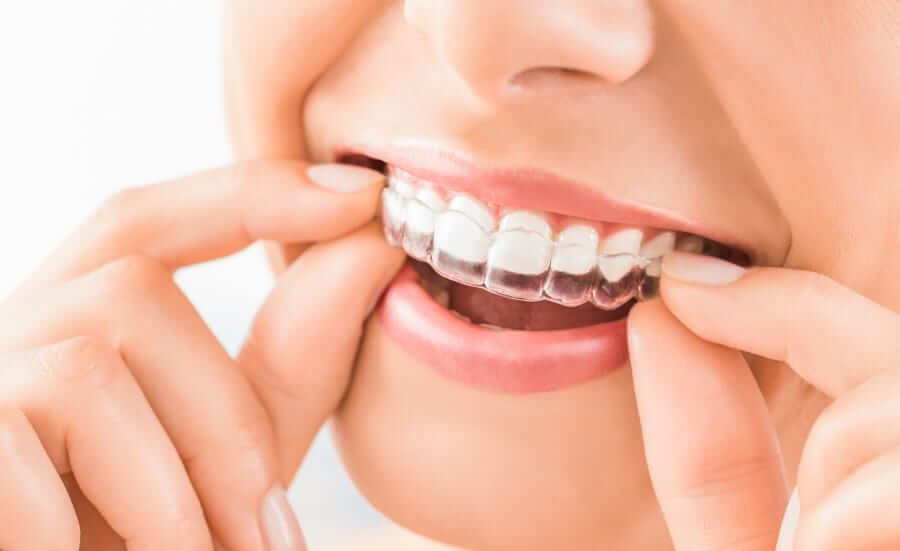Teeth grinding, or bruxism, can cause a variety of problems, such as headaches, jaw pain, muscle tightness, and broken teeth. A mouth guard is designed to prevent this issue, and there are several types to choose from.
A mouth guard is a device that a person wears to prevent teeth grinding, often during sleep. Below, we explore the various types of these products and describe when to see a dentist.
Please note, however, that the statements below are based only on research. No one at Medical News Today, including the writer, has tried these products.
Symptoms of bruxism
While a person may not realize that they are grinding their teeth, bruxism can cause:
- increased wear of the teeth
- tooth fractures
- limited ability to open the mouth
- stiffness and tenderness in the jaw muscles
- pain in the jaw joint
- headaches
- tenderness of the temporal muscles, located on the sides of the head near the temples
- an earache
- poor sleep
Types of mouth guards
The American Dental Association explain that there are the following types of mouth guard:
- Custom-made: These are made by a dentist and are typically the most comfortable.
- Boil-and-bite: These are often available at sporting goods stores and drugstores. A person softens the guard in boiling water, then bites down, molding the material to the shape of their mouth.
- Stock: This type of mouth guard is premade and ready to wear, but they may not fit as well.
A person might consider some of the following options of each type:
Chomper Labs
Chomper Labs offers custom-made mouth guards. First, a person selects the type of material:
- Soft: The company’s website say that this is suitable for light-to-moderate grinding.
- Hybrid: This aims to protect against moderate-to-heavy grinding.
- Hard: This is suitable for heavy-to-severe grinding.
- Retainer: This is designed to prevent hard grinding and promote teeth retention.
Next, the company sents a mold kit. The person takes a mold of their teeth, sends it back, and awaits the delivery of their custom-made mouth guard.
Pro Teeth Guard
Pro Teeth also make custom mouth guards. First, a person chooses the material. According to the company’s website, the choices are:
- Soft: This is suitable for light grinding.
- Hybrid: This is suitable for moderate grinding.
- Hard: This is suitable for heavy grinding.
- Ultra thin: This is suitable for light daytime grinding.
Next, the company sends a mold kit. The person takes a mold of their teeth, sends it back to the company, and receives their custom-made mouth guard in the mail.
Oral-B Nighttime Dental Guard
This is a boil-and-bite guard available at many drugstores and department stores.
Like others of its type, it offers a semi-custom fit and is typically less expensive than custom-made options.
First, a person softens the material, which may be done in the microwave. Next, they bite down on the material, which molds to the shape of their mouth. Once the material sets, a person can trim away any extra.
Plackers Grind-No-More
These are one-size-fits-all, disposable guards that protect the back teeth from light-to-moderate grinding.
According to the company’s website, a person can use each guard for up to 3 days, and they come in boxes of 10.
There is no molding or heating required, a person simply inserts the guard before going to bed.
Expect in-depth, science-backed toplines of our best stories every day. Tap in and keep your curiosity satisfied.Enter your emailSIGN UP NOW
SleepRight Dura-Comfort Dental Guard
According to the company’s website, this mouth guard is adjustable — a person moves it forward for a smaller fit and backward for a larger one.
They also say that the product has pads that swivel to match the angle of the person’s bite.
When to see a dentist
A person may visit their dentist with symptoms of teeth grinding, such as jaw pain. Or, a dentist may notice the signs, such as broken teeth, at a regular checkup.
Anyone who has tried a mouth guard and still has pain or any other bruxism symptoms should return to the dentist. It is also important to do so if the guard causes discomfort or other problems.
Other treatment options
A dentist may recommend one or more of the following ways to prevent teeth grinding, whether it happens during the day or night
- Restorative treatment: This involves addressing damage to teeth.
- Physical therapy: This may help with muscle pain or stiffness.
- Psychotherapy: This may be useful if the cause is related to stress.
- Medication: Antianxiety medication, tranquilizers, or muscle relaxants may help, depending on the cause of the bruxism.
Summary
Teeth grinding can lead to pain and other complications, and a mouth guard can help protect against it.
If a mouth guard does not work, a dentist can recommend further approaches to treatment.ADVERTISEMENTCan’t sleep? Try a natural solution


Recent Comments